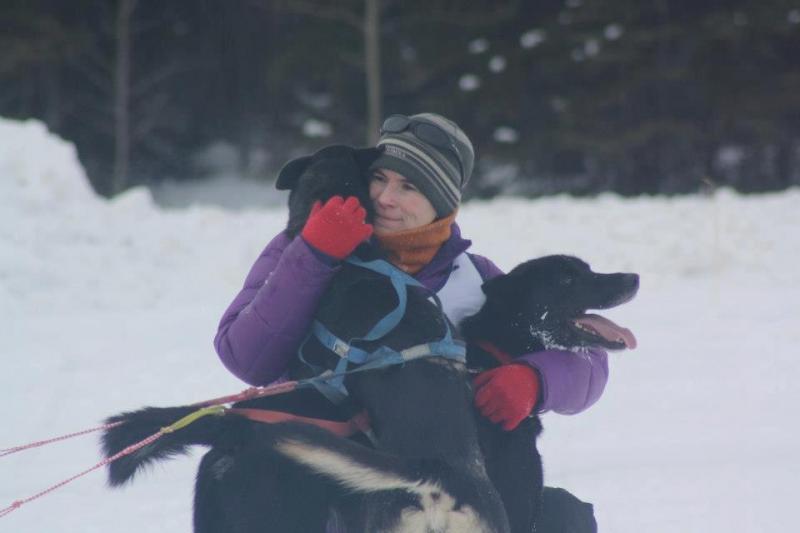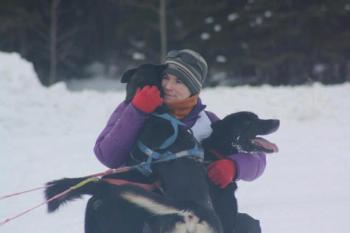‘It’s the mecca’: Wiscasset-raised Sutter sets sights on 2015 Iditarod
The Iditarod isn’t the 1,000-mile sled dog race Heidi Sutter has been aiming to enter.
“It never was a thought in my mind,” the 1994 Wiscasset High School graduate said from Chistochina, Alaska, where the wife, mother, schoolteacher and musher now lives. She was, and still is, planning to compete in the 2016 Yukon Quest 1000.
The lesser known, Whitehorse to Fairbanks race lacks the media spectacle that surrounds the Iditarod’s Anchorage to Nome run and, with fewer checkpoints than the Iditarod, it’s more challenging.
But this year, Sutter and her husband Darrin Lee were looking to put more miles of competition on their dogs; and Sutter had racked up enough miles and good post-race report cards to be eligible for consideration by the Iditarod’s trail committee.
Lee and Sutter were talking by phone when he first suggested she try to get in the race. The call cut off right after he said it, leaving Sutter with a day before they would talk again. “It was 24 hours of stressing on it, thinking on it. It was distracting at work.” she said. Her boss could tell something was on her mind. When she told him the idea, he picked her up and twirled her around.
Entry into the race is at the trail committee’s discretion, based on the miles logged, the report cards and other factors, Sutter said. She found out in July, she was in.
“At first it was very surreal: ‘I’m running the Iditarod.’ It just felt funny coming out of my mouth. The Iditarod is like going to the moon. It’s the mecca.”
The race, with more entrants in it than Chistochina has residents, starts March 7 in downtown Anchorage. Sutter, 38, has no expectations to be first or nearly first across the finish line. “There is no way I could ever win the Iditarod,” she said. The caliber of the other dog teams is too high; instead, her goal will be to finish in 10 days, likely days behind the winner.
It will be her first 1,000 mile event. Her longest to date is last April’s 440-mile Kobuk. She finished tenth in a field of 20. Stronger finishes have been in a third place out of 16 in a 300-mile version of the Yukon Quest, and twelfth out of 45 in the Copper Basin 300.
The excursion business Sutter works for has sponsored her $3,000 entry fee to the Iditarod. Getting to and through the race takes at least about another $17,000 in travel and other costs, Sutter said. She just bought $3,200 in dog food that will go into food drops during the race.
To help sponsor Sutter’s Iditarod run or to learn more about her and the dogs, go to www.kmakennel.com.
Event Date
Address
United States
























